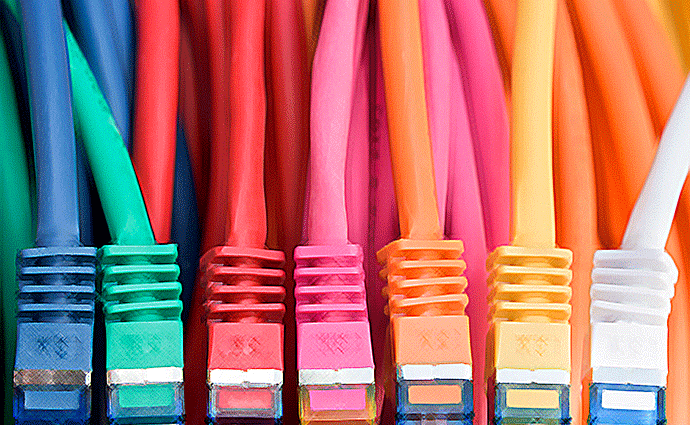FCC Expands Access to Broadband Resources for Telehealth Providers
The agency is relaxing broadband rules to give health systems and broadband providers more opportunities to improve connectivity and expand telehealth and mHealth capabilities.

Source: ThinkStock
- Federal officials are relaxing broadband rules to enable hospitals and health systems to work with Internet service providers to improve connectivity for telehealth and mHealth programs.
The Federal Communications Commission this week announced changes to its Rural Health Care (RHC) and E-Rate programs that will make it easier for broadband companies to support connected health outreach. More specifically, the FCC’s Wireline Competition Bureau has waived its gift rules to give those providers the freedom to offer – and care providers to accept – improved connections and telemedicine technology during the Coronavirus (COVID-19) pandemic.
The changes are designed to give healthcare providers in remote and rural areas access to improved broadband connectivity so that telehealth and mHealth programs can be offered to more people and with fewer glitches. Providers in many rural states have cited connectivity as a particular challenge in offering, sustaining or scaling connected health programs.
“The increase in COVID-19 patients is presenting unique challenges to America’s hospitals and health care providers,” FCC Chairman Adit Pai said in a press release. “Telemedicine will play an increasingly critical part in treating patients and helping health care providers maximize their impact on their communities.”
“By waiving certain FCC rules today, we are giving service providers the chance to step up and give health care providers more tools to fight the ongoing pandemic and serve patients more effectively, like increased capacity, more equipment, additional services, and other tools that will help them deliver the best possible patient care,” Pai added. “I expect that these private-sector efforts will complement the Commission’s ongoing work with Congress to appropriate funds for a Remote Learning Initiative and a COVID Connected Care Pilot - programs that would allow us to use federal funds to support in-home equipment for patients and students impacted by the coronavirus pandemic.”
READ MORE: Senators: Expand ReConnect Program to Support Rural Telehealth
The announcement drew praise from FCC Commissioner Jessica Rosenworcel, along with a call to do more.
“Today’s waiver of the E-Rate and Rural Health Care gift rules is a smart step to assist in coronavirus response,” she said in a press release. “But let’s not confuse generosity for justice, because we need a national plan to ensure that everyone is connected during these unprecedented days.”
“This should … include working with health care providers to ensure connectivity for telehealth services are available for hospitals, doctors, and nurses treating coronavirus patients and those who are quarantined,” she added. “We also need to do more so Americans can get online during this crisis at little or no cost. Where data caps and overage fees remain in place, they need to be lifted and eliminated.”
Last week, the FCC chairman called on broadband service providers to prioritize the connectivity needs of healthcare providers to enable them to improve and expand connected health services to remote and rural communities.
The announcement comes at the same time that a bipartisan group of Senators sent a letter to the FCC asking the agency to increase subsidies to healthcare providers through the RHC.
“The Rural Health Care Program supports telehealth at urban and rural locations to improve patient care and reduce health care costs,” the letter, addressed to Pai and signed by 26 Senators, states. “The program is comprised of two parts, the Telecommunications Program, which subsidizes the difference between urban and rural rates for telecommunications services, and the Health Care Connect Fund, which provides health care providers a 65 percent discount on their telecommunications and broadband costs.”
“Although the Rural Health Care Program has encouraged investment in telehealth across the country, it is not enough, as the COVID-19 pandemic has strained our nation’s medical system and has created an increased demand for remote patient care,” the letter adds. “The Commission noted the challenge COVID-19 has imposed on health care providers when it announced last week that all eligible funding year 2019 requests would be fully funded using existing rollover funds. Increasing the subsidies for the Rural Health Care Program participants for the 2019 funding year in a similar manner, and thus not impacting other universal service programs, would allow health care providers to increase the use of telehealth services and further protect the well-being of their patients and employees. The Commission should also extend the filing window for the 2020 funding year to June 30th, as it has already done for E-Rate program participants, so that the many health care providers that are currently on the front-lines of providing care to patients will not miss out on applying for next year’s Rural Health Care Program funds.”
